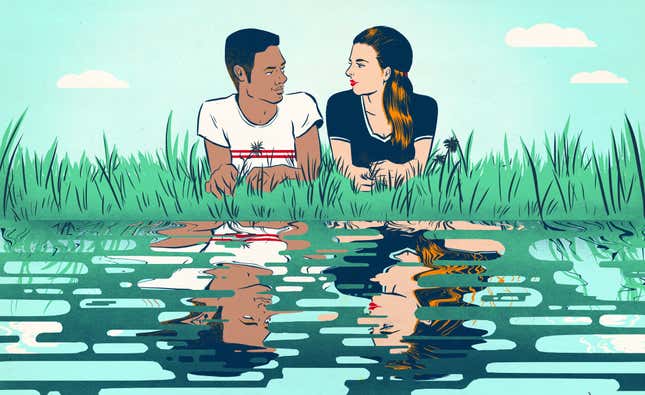Your Relationship Will Change. Here's What to Expect.
Latest

Over the course of a human life, while many of us remain true to form in an astonishing number of ways, we also grow and change.
Of course, there are any number of things that might change about us over the course of our lives. I no longer drink cow’s milk. I’ve grown to appreciate country music. And I used to be a person who was never going to have a child, but I am now the deeply smitten steward of a 5-year-old girl. But it seems a big part of our commitment to other people is the promise that we will not change in certain fundamental ways—what is marriage, if not the promise to keep being the person we always were? We bank on our person keeping the essence of their person-ness until death do us part.
But perhaps a better approach to relationships would be to accept and embrace the certainty of a future change in ourselves and others. To expect it, even. Even though it may be true that our core selves are formed by 30, that doesn’t mean we are always in touch with that self, or that it can’t still evolve after exposure to new ideas and experiences.
Assume people will change in the following ways:
Whether or Not to Have Kids (and How Many)
You may have kids and wish you hadn’t. You may have one and wish you had two, or have one and say you don’t want two and then decide you do want a second and write an essay about it, or have three and wish you had one, and every iteration in between. Some people who say they don’t want kids do end up wanting them later on, maybe even with someone else who somehow changed their mind. Some things are impossible to know without having done them, and one of those things is having kids.
I know it’s often sexist and paternalistic to tell women to not do anything too rash because they might change their minds about having kids later on. But it can also be the truth. Likewise, a partner who previously wanted children may realize they actually don’t. And while these kinds of existential flip-flops are fucked up and difficult to navigate—and can ultimately result in the end of a relationship—I think it’s important to not view such changes as a betrayal, but rather as side effects of the largeness and complexity that is being human.
-

-

-

-

-

-

-

-

-

-

-

-

-

-

-

-

-

-

-

-

-

-

-

-

-

-

-

-

-

-

-

-

-

-

-

-

-

-

-

-








































